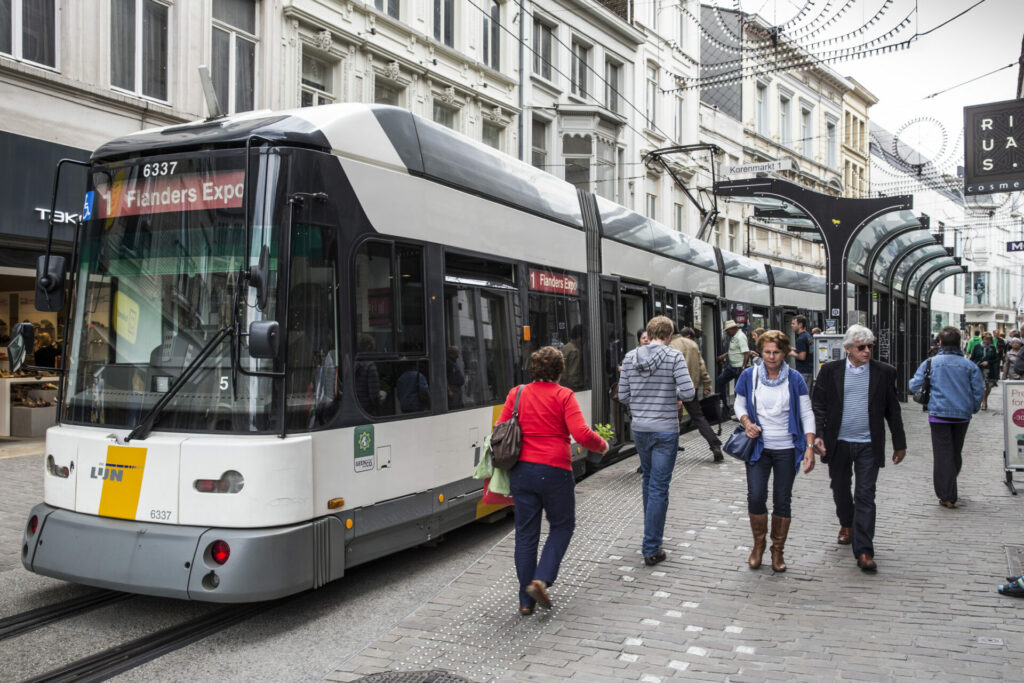Flemish public transport operator De Lijn has presented its new "basic accessibility" public transport system, which will come into force on 1 July.
The package of some 100 adjustments, both minor and major improvements to the transport offer across Flanders, is part of the phased roll-out of the new mobility vision Hoppin, which aims to ensure transport is better tailored to the needs of travellers.
"On busy routes, De Lijn is betting on faster and more frequent buses and trams. In places where there is less demand for public transport, flexible transport will be introduced," said Flemish Minister for Mobility and Public Works Lydia Peeters.
In a statement, De Lijn explained that the public transport network consists of four transport layers – the train network, the core network of trams and buses, the supplementary network and customised transport – which will be better connected to allow travellers to switch from one mode to another.
Transfers and tailored services
The network will evolve around so-called Hoppinpunts – hubs where seamless transfer to different means of transport such as train, bus, tram, partial systems or flexible transport (flex bus or taxi) is possible – and will focus on aligning its core network of trams and buses with the train network.
The buses and trams of the core network will connect large residential centres and places visited on an "everyday" basis – such as schools, sports and recreation centres, hospitals and commercial centres – and will be better aligned with the train network.
The supplementary network will organise buses between smaller cities and towns, providing "feeder services" to the core network and the train network.
Related News
- Brussels Philharmonic treats STIB passengers to free concerts
- Not Good Move? Saint-Gilles launches circulation plan after all
In places where the core network or the supplementary network is not accessible, tailored transport will be put in place, ranging from a neighbourhood bus or a collective taxi that transports passengers on demand to shared cars and shared bicycles. "It also includes the offer for people with severe physical disabilities," De Lijn explained.
Travellers can now use the route planner on the website to check if there are any changes to their itineraries. "If you enter a date from 1 July, you can see if anything changes for you."

